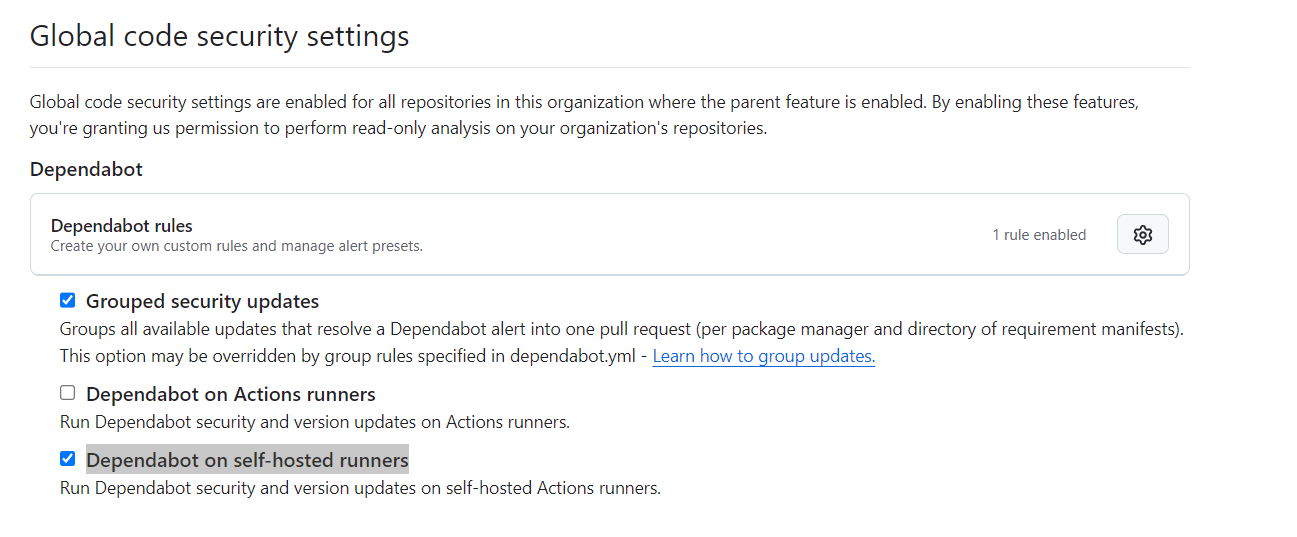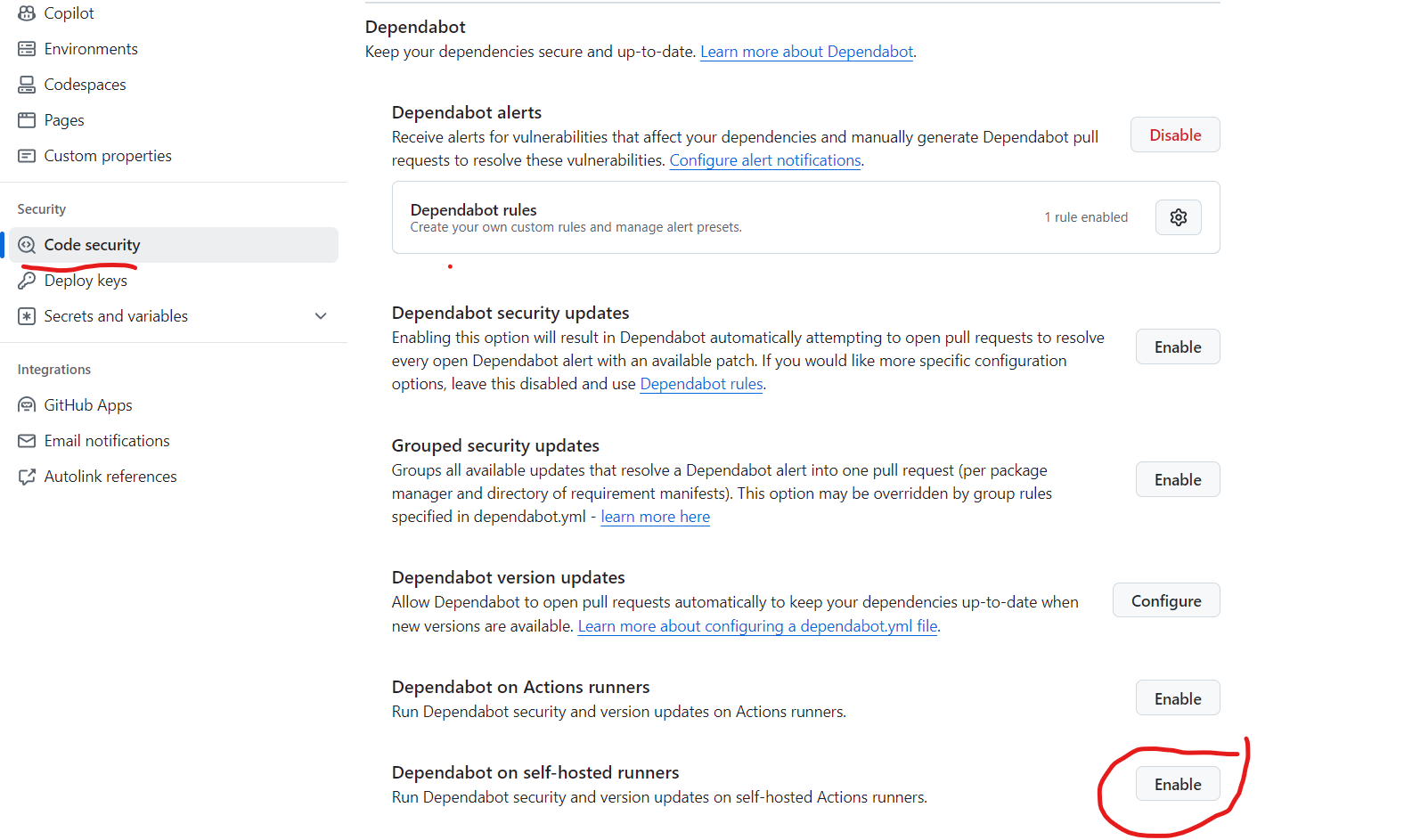Dependabot#
Dependabot is a tool to "monitor vulnerabilities in dependencies used in your project and keep your dependencies up-to-date."
By default, dependabot scans your repository's default branch (e.g. main). This can be overridden with target-branch.
Dependabot is configured to run by creating a dependabot.yml in your .github/ directory
Notes around configuring your dependabot.yml file can be found here
Here is an example of a very basic ruby bundler dependabot configuration. It looks for updates every day looking at the root directory for the package manifest:
version: 2
updates:
- package-ecosystem: 'bundler'
directory: '/'
schedule:
interval: 'daily'
labels:
- "dependencies"
Run Dependabot on self-hosted runners#
Dependabot normally runs in "Github Hosted" space on their Action runners; for most workflows this is fine. If there is a need to access a resource on-prem or from a known IP-Address (firewall for example) dependabot can be run on a self-hosted runner, such as the ones Devex provides.
To enable this there are 2 steps:
- Enable for Org: navigate to your Orgs
Settings > Security > Code Security > Global Settings(https://github.com/organizations/ORG/settings/security_analysis) and check to box forDependabot on self-hosted runners 
- Enable for a Repository: Navigate to the similar location for the repository
Settings > Security > Code SecurityfindDependabot on self-hosted runnersand Enable it. 
Dependabot and artifactory.umn.edu#
In order to point to artifacts hosted on the University's on-prem Artifactory appliance, you need to configure your org to leverage self-hosted runners (as explained above); if you use Actions runners (hosted on github.com), you may receive errors saying Cannot read TLS response from mitm'd server and connect: connection timed out
If your artifacts are in public registries/repositories, there is no need to register artifactory.umn.edu or use special secrets.
Keeping Actions up to date#
If you plan to use Github Actions for builds, tests, or deployments, dependabot can keep the Actions you are running up to date as well.
- package-ecosystem: "github-actions"
# Workflow files stored in the default location of `.github/workflows`. (You don't need to specify `/.github/workflows` for `directory`. You can use `directory: "/"`.)
directory: "/"
schedule:
interval: "weekly"
More information on automating dependabot using actions can be found here.